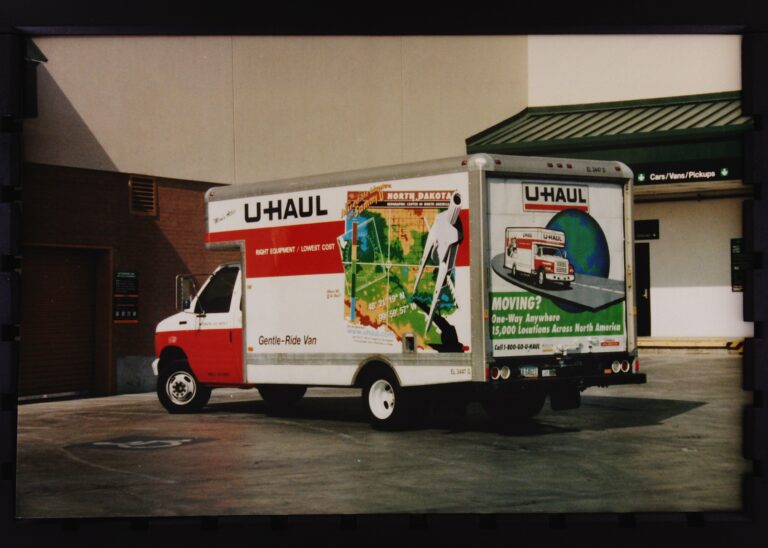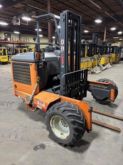The Road to Culinary Success: Navigating the Used Food Truck Market in Orlando

The Road to Culinary Success: Navigating the Used Food Truck Market in Orlando
Orlando, Florida, a city synonymous with magic, innovation, and an ever-evolving culinary landscape, offers a vibrant stage for aspiring food entrepreneurs. While the dream of owning a restaurant often comes with prohibitive overheads, the food truck industry has emerged as a dynamic, cost-effective alternative, allowing chefs and restaurateurs to bring their unique concepts directly to the people. For many, the most strategic entry point into this thriving scene isn’t a brand-new, custom-built rig, but rather a pre-owned food truck. The market for used food trucks for sale in Orlando is robust, offering a treasure trove of opportunities for those ready to hit the ground running.
This comprehensive guide will delve deep into why Orlando is an ideal location for food truck ventures, the undeniable advantages of opting for a used vehicle, a meticulous checklist for what to look for when buying, where to find these mobile kitchens, and the critical steps to ensure a smooth purchase and successful launch.
Orlando: A Culinary Melting Pot on Wheels
Orlando’s unique demographic and economic drivers make it an exceptionally fertile ground for the food truck industry. It’s not just a tourist mecca; it’s a rapidly expanding metropolitan area with a diverse local population and a constant influx of convention-goers and event attendees.
- Tourism & Theme Parks: With millions of visitors flocking to Walt Disney World, Universal Orlando Resort, SeaWorld, and countless other attractions annually, the demand for convenient, diverse, and often unique food options is insatiable. Food trucks can position themselves strategically near tourist hubs, offering a quick bite that caters to a wide range of international and domestic palates.
- Convention Capital: Orlando is a global leader in conventions and trade shows. These events bring tens of thousands of people to the city, all looking for dining experiences that can range from quick lunches to catering services. Food trucks can be an agile solution for event organizers and a lucrative venture for operators.
- Local Growth & Diversity: Beyond the tourist core, Orlando is home to a rapidly growing, diverse population. This creates a demand for authentic, international, and specialized cuisines that traditional brick-and-mortar establishments might not offer as readily. Neighborhoods, business parks, and residential areas are increasingly welcoming food truck rallies and regular visits.
- Year-Round Operations: Florida’s subtropical climate means food trucks can operate comfortably almost every day of the year. Unlike northern states where winter weather can significantly limit operations, Orlando’s mild winters and sunny summers provide consistent opportunities for business.
- Vibrant Foodie Culture: Orlando has developed a sophisticated food scene, and food trucks are an integral part of it. Regular food truck meetups, festivals, and designated food truck parks (like the popular World Food Trucks on International Drive) provide established venues and a supportive community for mobile culinary businesses.
This dynamic environment creates a persistent demand, making Orlando an attractive city for anyone considering a mobile food venture.
The Strategic Edge: Why Choose a Used Food Truck?
While the allure of a custom-built, brand-new food truck is undeniable, the practical and financial advantages of purchasing a used rig are often compelling enough to sway even the most ambitious entrepreneur.
- Significant Cost Savings: This is, arguably, the most compelling reason. A brand-new, fully equipped food truck can easily cost upwards of $100,000 to $200,000, sometimes more. A well-maintained used truck, depending on its age, condition, and equipment, can be acquired for a fraction of that price – often between $30,000 and $80,000. This massive reduction in initial capital outlay frees up funds for inventory, marketing, permits, and a crucial operating buffer.
- Faster Market Entry: New builds require lead times that can span several months, from design and fabrication to equipment installation and permitting. A used truck, especially one that is already permitted for Florida operation, can be purchased and ready to roll in a matter of weeks, allowing you to capitalize on immediate market opportunities.
- Reduced Depreciation: Like any vehicle, a food truck begins to depreciate the moment it’s driven off the lot. By purchasing used, you allow the previous owner to absorb the steepest part of this depreciation curve, making your investment more stable.
- Proven Concepts & Existing Equipment: Many used food trucks come with established kitchen layouts and essential equipment already installed. This eliminates the guesswork and potential costly mistakes of designing a kitchen from scratch. In some cases, you might even find a truck from a retiring owner who is selling a successful concept, complete with branding and a customer base.
- Immediate Income Potential: With less time spent on construction and more on preparation, a used truck can generate revenue much faster, helping to offset the purchase price and build cash flow.
- Opportunity for Customization: A used truck isn’t a limitation; it’s a canvas. While it might have existing equipment, there’s always room for upgrades, minor modifications, and a complete rebranding to make it uniquely yours.
For the budget-conscious entrepreneur or anyone looking to test a culinary concept without immense upfront risk, a used food truck in Orlando presents an intelligent, pragmatic path to business ownership.
The Ultimate Buyer’s Checklist: What to Scrutinize When Buying Used
Purchasing a used food truck is a significant investment, akin to buying a commercial kitchen and a heavy-duty vehicle simultaneously. Thorough inspection is paramount. Don’t let excitement cloud your judgment.
A. The Vehicle Chassis & Engine:
This is the foundation of your mobile business.
- Engine & Transmission: Inquire about the engine type (gasoline vs. diesel), mileage, and maintenance history. Look for signs of leaks (oil, coolant, transmission fluid). Check fluid levels and clarity. Listen for unusual noises during a test drive (knocking, grinding).
- Tires: Inspect tire tread depth and condition. Look for uneven wear, which could indicate alignment issues. Check the spare tire.
- Brakes: Test the brakes thoroughly during a test drive. Listen for squealing or grinding.
- Suspension: Assess the truck’s stance. Does it sag? Test the shocks by pushing down on each corner.
- Frame & Undercarriage: Look for rust, cracks, or damage, especially in high-salt environments like Florida (though Orlando isn’t coastal, trucks may have traveled).
- Electrical System (Vehicle Side): Check headlights, taillights, turn signals, dashboard lights, and gauges.
- VIN Check: Run a vehicle history report (CarFax, AutoCheck) to check for accidents, salvage titles, liens, and reported mileage discrepancies.
- Professional Mechanic Inspection: This is non-negotiable. Have a qualified heavy-duty mechanic inspect the vehicle before purchase. They can spot hidden issues that you might miss.
B. The Kitchen & Equipment:
This is where you make your money. Every piece of equipment needs careful inspection.
- Layout & Flow: Does the kitchen layout make sense for your intended menu? Is there sufficient prep space, cooking area, and storage? Consider ergonomics and efficiency.
- Ventilation System: Inspect the hood, exhaust fan, and fire suppression system. Ensure the fan works powerfully and is clean. The fire suppression system must be up-to-date and certified. This is a critical health and safety requirement in Florida.
- Cooking Equipment:
- Grills, Fryers, Ovens, Stoves: Test each appliance. Do they heat up quickly and maintain temperature? Are burners working? Check for grease buildup, rust, or significant wear. Inquire about the last service date.
- Propane Tanks & Lines: If gas-powered, check tanks for rust or damage. Ensure gas lines are secure and free of leaks (a sniff test can help, but professional inspection is best).
- Refrigeration & Freezers: Turn them on. Do they cool down quickly to proper temperatures (below 41°F for refrigeration, 0°F for freezers)? Check door seals for leaks, listen for unusual noises from compressors, and inspect coils for cleanliness.
- Sinks: Florida health codes typically require a 3-compartment sink for washing, rinsing, and sanitizing, plus a separate handwashing sink. Check for leaks, proper drainage, and hot/cold water supply.
- Water System:
- Freshwater Tank: Check capacity (usually 30-50 gallons or more). Look for leaks.
- Wastewater/Greywater Tank: Should be 15% larger than the freshwater tank. Check for leaks.
- Water Pump & Water Heater: Test their functionality. Is water pressure adequate? Does the water heater produce hot water consistently?
- Electrical System (Kitchen Side):
- Generator: What is its wattage? Is it sufficient for all your equipment running simultaneously? Test it under load. Inquire about its service history.
- Wiring & Outlets: Look for frayed wires, loose connections, or burnt outlets. Ensure the electrical panel is well-organized and clearly labeled.
- Shore Power Connection: If applicable, test the external power connection.
- Fire Extinguishers: Ensure they are present, charged, and within their inspection dates.
- Cleanliness & Sanitation: While you can clean a dirty truck, excessive grime or signs of pest infestation can indicate a lack of maintenance and potential underlying issues.
- Overall Condition of Walls, Floors, Ceilings: Look for signs of water damage, rust, or structural integrity issues. Floors should be non-slip.
- Seller’s Records: Request maintenance logs for both the vehicle and the kitchen equipment. Ask for equipment manuals, past inspection reports, and proof of any repairs.
C. Permits & Documentation:
Crucial for operating legally in Orlando.
- Florida Mobile Food Establishment Permit: Has the truck ever been permitted in Florida? If so, review past inspection reports.
- Fire Marshal Approval: Essential for any cooking equipment.
- Orange County/City of Orlando Regulations: Understand local zoning, parking, and operational rules.
- Title & Bill of Sale: Ensure the seller has a clear title and is ready to provide a proper bill of sale.
D. Test Drive & Operation:
- Drive the truck yourself. Pay attention to how it handles, brakes, and accelerates.
- Run all kitchen equipment simultaneously for a period to test the generator and overall power system under load.
Where to Find Used Food Trucks for Sale in Orlando
The Orlando market offers several avenues for finding your ideal mobile kitchen:
-
Online Marketplaces:
- Dedicated Food Truck Sales Sites: Websites like UsedVending.com, FoodTruckEmpire.com (listings section), and BizBuySell (for existing businesses with trucks) specialize in food truck sales and often have extensive listings for the Florida region.
- General Classifieds: Craigslist (search "food truck," "concession trailer"), Facebook Marketplace, and eBay Motors are popular platforms. Be wary of scams and always inspect in person.
- Commercial Vehicle Dealers: Some truck dealerships may have used commercial vehicles suitable for conversion or already converted food trucks.
-
Local Brokers & Dealerships:
- There are specialized food truck brokers or dealerships in Florida that buy, refurbish, and sell used food trucks. They often offer financing options and may even handle some permitting aspects. A quick Google search for "food truck dealers Orlando" can yield results.
-
Networking & Local Associations:
- Orlando Food Truck Association (OFTA): Connecting with local food truck operators through associations or events can lead to word-of-mouth opportunities. Sometimes owners are looking to upgrade or retire and prefer to sell directly.
- Local Food Truck Events/Rallies: Attend these events. You might see a "For Sale" sign on a truck or strike up a conversation with an owner who’s considering selling.
-
Direct from Retiring Owners:
- Keep an eye out for existing food truck businesses that are for sale. Sometimes, a successful operation is sold as a whole, including the truck, equipment, branding, and even client lists. This can be a more expensive but potentially less risky option.
-
Auctions:
- Government surplus auctions, business liquidation auctions, or even police auctions can occasionally feature food trucks. These are high-risk, high-reward ventures as vehicles are sold "as-is" with little opportunity for thorough inspection beforehand.
The Purchase Process & Beyond
Once you’ve found a promising candidate, the journey isn’t over.
- Negotiation: Don’t be afraid to negotiate the price. Research comparable sales and be prepared to justify your offer based on the truck’s condition and your inspection findings.
- Financing: Explore your options. Many banks offer small business loans or equipment financing. The Small Business Administration (SBA) also backs loans that can be used for food truck purchases. Some sellers may offer owner financing, especially for higher-value trucks.
- Legalities: Ensure a clear title transfer. Draft a comprehensive bill of sale that details the vehicle VIN, all included equipment, and any warranties (even if "as-is"). Consider consulting with a legal professional specializing in business purchases.
- Insurance: Secure commercial vehicle insurance and general liability insurance before you operate. This is critical for protecting your investment and your business.
- Post-Purchase:
- Deep Clean & Sanitation: Even if the truck looks clean, a professional deep clean and sanitization is crucial before you start cooking.
- Necessary Repairs & Upgrades: Address any issues identified during inspection. This is also the time for any cosmetic or branding changes.
- Permitting & Licensing: Work closely with the Florida Department of Health, the local Fire Marshal, and Orange County/City of Orlando planning departments to ensure all permits and licenses are in place before you start operating. This will involve commissary agreements, health inspections, and fire inspections.
Navigating Orlando’s Regulatory Landscape
Orlando, like any major city, has specific regulations for mobile food vendors. Before you even start looking for a truck, familiarize yourself with these:
- Commissary Requirement: Most Florida counties, including Orange County, require food trucks to operate out of a licensed commissary kitchen. This is where you’ll prep, store food, and handle waste. Secure a commissary agreement before applying for permits.
- Health Department Inspections: Your truck will need to pass rigorous inspections by the Florida Department of Health.
- Fire Safety: The local Fire Marshal will inspect your truck’s fire suppression system, propane lines, and overall fire safety compliance.
- Zoning and Parking: Understand where you are legally allowed to park and operate. Some areas may have restrictions or require special permits for specific events.
Conclusion
The dream of serving delicious food from a mobile kitchen is highly attainable in Orlando, especially when starting with a used food truck. The city’s thriving economy, year-round events, and diverse population create a fertile ground for culinary innovation on wheels. By strategically opting for a used rig, you unlock significant cost savings and accelerate your path to market.
However, success hinges on diligence. A meticulous inspection, an understanding of the local market, and a commitment to navigating the regulatory landscape are paramount. With careful planning, thorough research, and a passion for food, your used food truck in Orlando can become a cornerstone of the city’s vibrant culinary scene, paving your road to entrepreneurial success. The magic of Orlando awaits your unique flavor.



